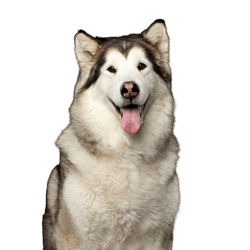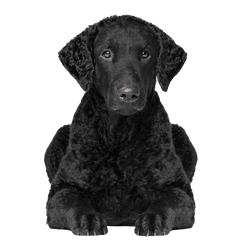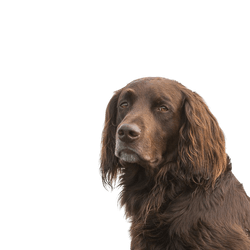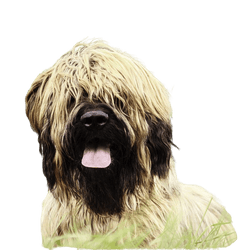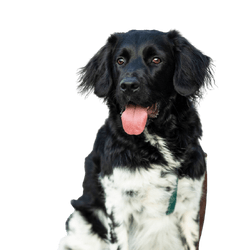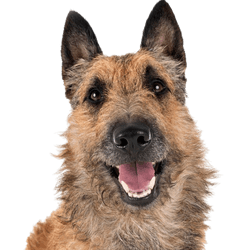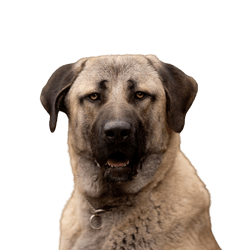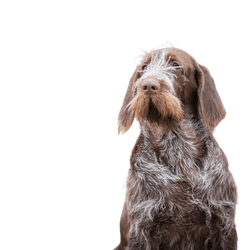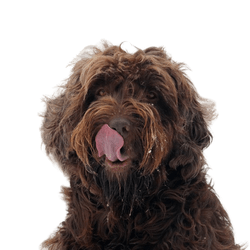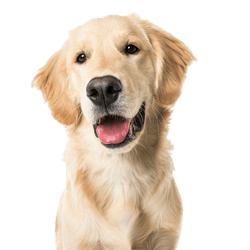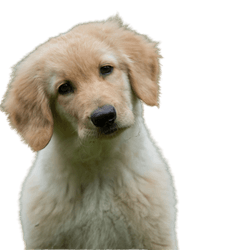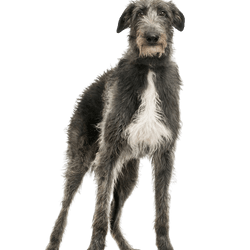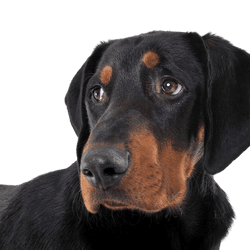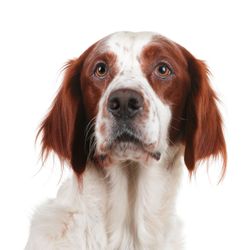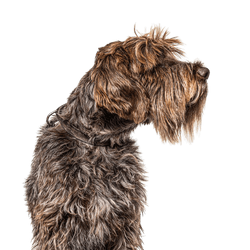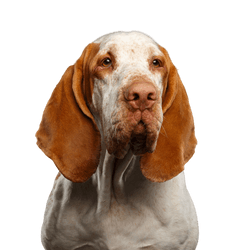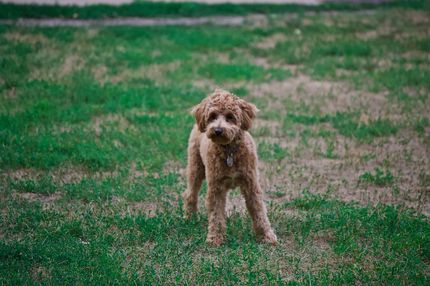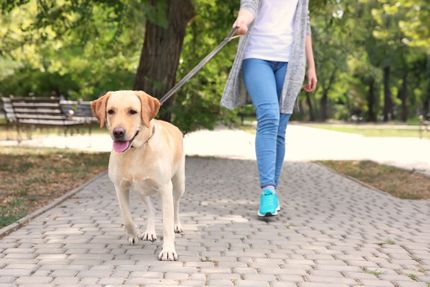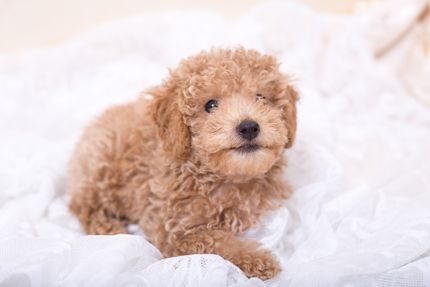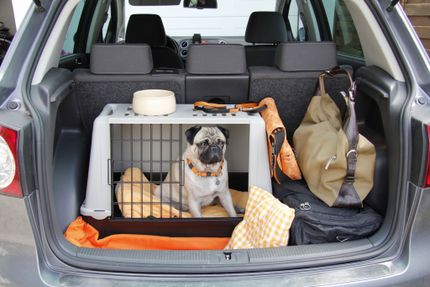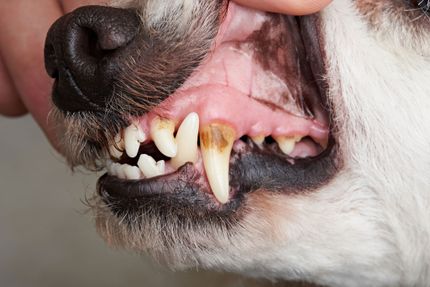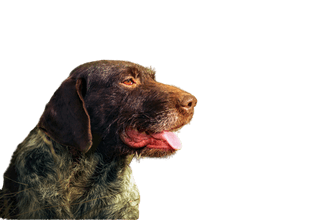
German Wirehaired Pointer Breed description: Character & Co
German Wirehaired Pointer
Facts & Origin
What is the origin of the German Wirehaired Pointer?
Sigmund Freiherr von Nedlitz and Neukirch is known as one of the pioneers in German Wirehaired Pointer breeding. It was his concern to create a strong and intelligent hunting dog with a short coat. This dog should be universally usable and master searching as well as pointing and retrieving. Such so-called full-use dogs only began to appear in the middle of the 19th century. The reason for this was the development of modern firearms that could also be used from a distance. Before that, the aristocracy would mainly go for par force hunts accompanied by packs of hounds. The German Wirehaired Pointer on the other hand is a dog that loyally supports its owner during a solitary hunt. Around 1900, targeted breeding finally began, whereby Korthals Griffons, Poodle-pointer and German Wirehaired were paired with each other. Helpful for the choice of the parent animals was the German Working Dog Stud Book, where starting in 1897 dogs with a particularly high performance level were registered. A further milestone was the foundation of the association 'Drahthaar' in 1902.
What are the breed characteristics of the German Wirehair?
The German Wirehaired Pointer is a strong pointing dog with a short coat. It is a true all-rounder, which provides valuable services both before and after the shot is fired on the hunt. Their excellent nose is of great benefit when searching for game: they are determined to track down game and retrieve it over longer distances. Their tail is also a striking feature, which the animal carries horizontally when it is excited. In the past, it would often be docked, but this has been prohibited in Austria since 2005.
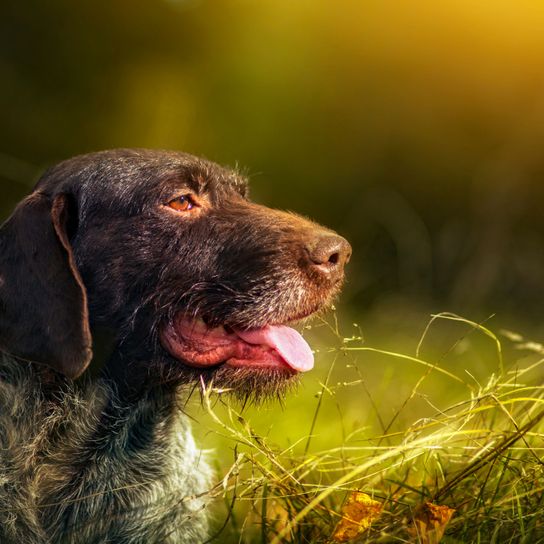
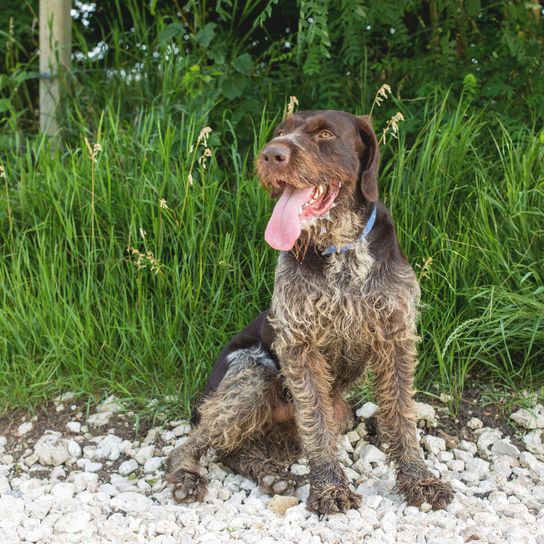
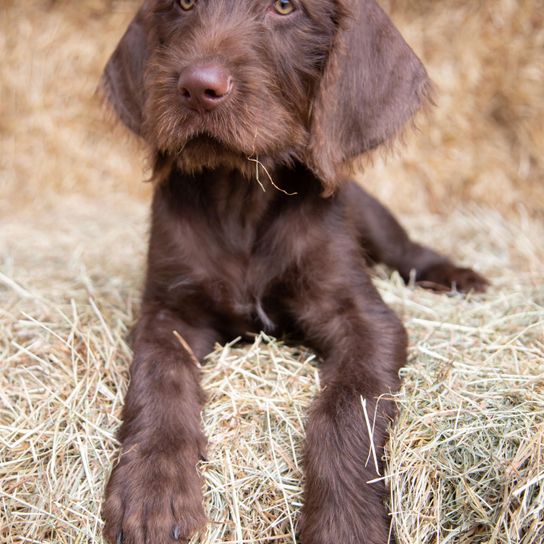
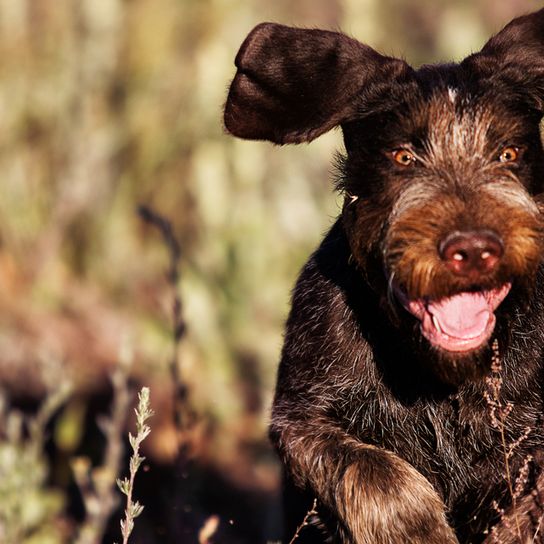
| Alternate Name | Deutsch Drahthaar |
| Origin | Germany |
| Life expectancy | 12 - 14 years |
| Care requirements | low-maintenance |
| Activity level | high |
| FCI group | Continental Pointing Dogs |
| AKC group | Sporting Group |
| KC group | Gundog Group |
German Wirehaired Pointer mixes
Attitude, character and temperament of the breed
What are the typical character traits of the German Wirehaired Pointer?
Especially hunters like to buy German Wirehaired Pointers. After all, it is an eager hunting dog, which requires the guidance of an expert handler. Only one walk a day is not sufficient for the ambitious four-legged friend. They love to use their nose and they distinguish themselves with their great eagerness to work. Training of the breed belongs in the hands of experts. Sometimes the determined animal can prove to be stubborn. It is best to meet their stubbornness with consistency and consequence from the beginning. If you do not use the German Wirehair for hunting, you should consider a varied alternative program. Since they like to use their excellent nose, search games or mantrailing are ideal sports for them. But it cuts a good figure as a companion on bike tours or when running too. They are also an ideal partner for horse owners who enjoy going for long rides. However, you should always keep an eye on their hunting instinct.
If the German Wirehaired Pointer feels like it is not being challenged enough, they like to go for strolls on their own. Although they love to work, they needs close family contact. It is always good-natured towards children and gets along well with other dogs. Because of their urge to move and love for nature, the four-legged friends feel most comfortable in a house with a garden. Here they can also prove their talent as watchdogs.
Character
Usage
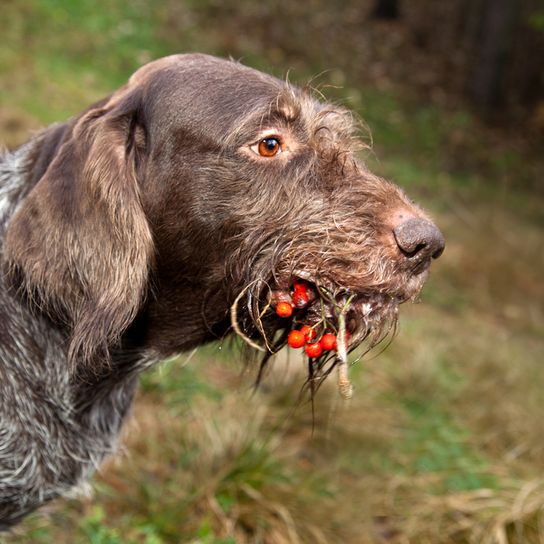

Health and breeding information
What are typical diseases of German Wirehaired Pointers?
Although the German Wirehair is considered to be robust, some diseases occur:
- Willebrand disease, a bleeding disorder
- Hip dysplasia
- Epilepsy
- Heart problems
What should be considered in regards to German Wirehaired Pointer breeding?
It is best to visit a breeder more often to get an impression of the keeping conditions of the puppies. Especially if you are looking for a companion dog, early socialisation is important. It is also important to know that only parents who pass a demanding breeding test are admitted. German Wirehaired Pointers that end up in shelters are often animals that are not suitable for hunting. From the very beginning the German Wirehaired Pointer has not been judged by its appearance but by its performance.


Appearance and coat of the German Wirehaired Pointer
As the name suggests, the German Wirehair is covered with rough fur. Underneath the two to three centimetres long top coat there is a dense undercoat, which provides good protection against the weather. It also has a water-repellent effect, which the animal benefits from in rain and snow. Possible colours defined by the breed standard are
- black-mold,
- brown-mold or
- light-molded.
White badges are allowed, but not a must. The bushy eyebrows and the beard give the animal a grumpy look on their face. But appearances are deceiving, because behind them lies an extremely friendly dog. Since the fur acts as a dirt-repellent, they are pretty low-maintenance. Nonetheless, your four-legged friend will definitely enjoy regular brushing.
What size does a German Wirehaired Pointer reach?
- Males: 61 to 68 centimetres
- Bitches: 57 to 64 centimetres
How much does a German Wirehaired Pointer weigh?
The German Wirehaired Pointer weighs between 25 and 35 kilograms.
What is the average lifespan of a German Wirehair?
A German Wirehaired Pointer reaches an age of 12 to 14 years.
| Fur length | short |
| Fur | rough-haired |
| Ear shape | - |
| Tail | short |
| Anatomy | sporty |
| Size ♀ | 57 - 64 cm |
| Weight ♀ | 27 - 32 kg |
| Size ♂ | 61 - 68 cm |
| Weight ♂ | 27 - 32 kg |
| Suitable For | - |
Colors
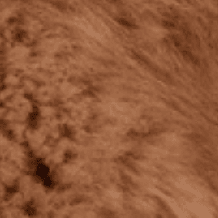
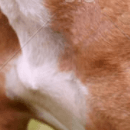
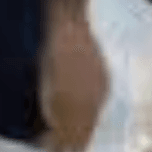
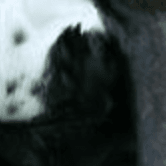
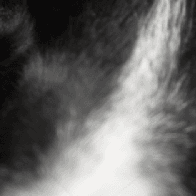
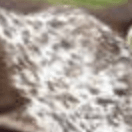



Other large dogs
Useful Articles
You can find articles that might interest you in the dogbible blog to match your favorite breed.
Visit our magazineto stay up to date on dog trends.
To find out more, view our Privacy Policy
Find here the breed that suits you and find out what character traits it has. Here you can also learn more about the origin, size and weight of your favorite breeds.
Matching your favorite breed, you'll find articles that might interest you on the dogbible dog blog.
Vegan dog food - polarizing topic
Chronic ear infection in dogs - what you can do
Shortening the claws of a dog - this is what you have to pay attention to
Celebrity dog - which breed belongs to which celebrity
Alopecia in dogs - causes, symptoms, diagnosis, prevention and treatment.


